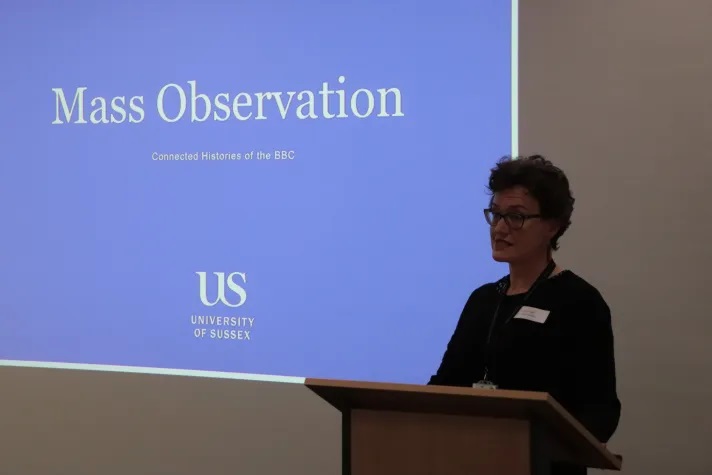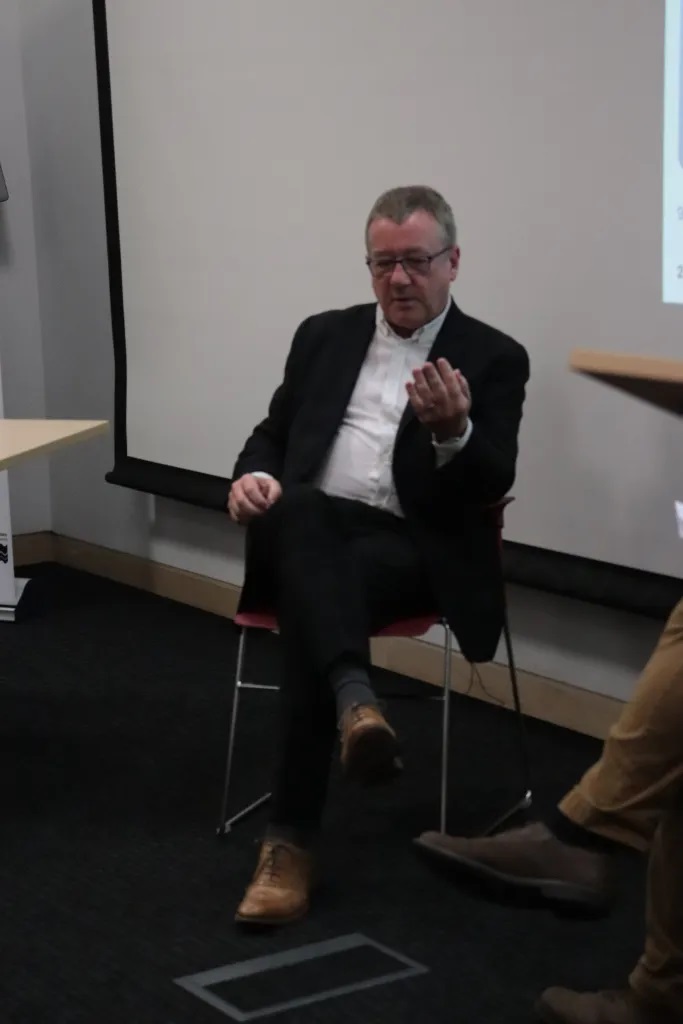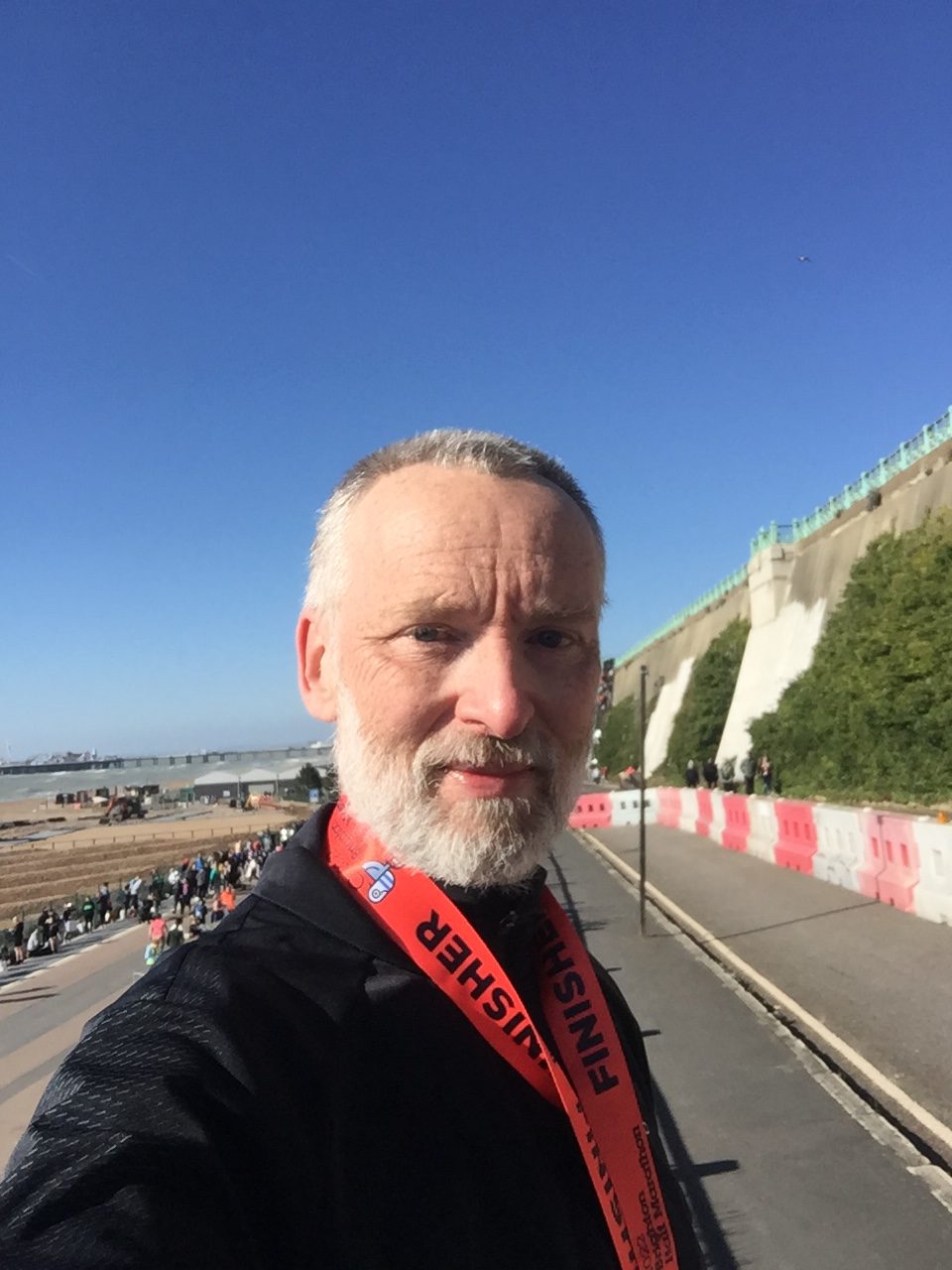FEBRUARY 12, 2020
What was it like to work for the BBC during the Second World War and did it play a special role in shaping the public’s experience of war? These are two of the issues addressed during our project’s third public event held on Saturday 19 October 2019 at The Keep in Brighton.
David Hendy introduced the latest addition to our Voices of the BBC that Made the BBC website https://www.bbc.com/historyofthebbc/100-voices/ww2 . David highlighted how the BBC’s oral history archives contain interviews with staff regarding their wartime experience. Among the recordings are Mary Lewis from the Duplicating Section who spoke of the “social revolution” that took place at the BBC, and Frank Gillard who was recruited as the War Correspondent.
I was particularly interested to hear about how large numbers of BBC staff were evacuated out of London during the war to Bristol, Bedford, Bangor, and Weston-Super-Mare. However, the BBC continued to operate from Broadcasting House and we learnt how the staff slept on the floor of the Concert Hall whilst facing the very real threat of being hit by German air bombers. Indeed, Broadcasting House was hit in October 1940 resulting in several deaths and many injuries.
Another extremely rich source of archival information was introduced by Fiona Courage, the curator of the Mass Observation Archive, which is held at The Keep. Among the 16 documents from the Mass Observation Archive available on the website are various responses from ordinary listeners to war news, A particularly striking one is the entry made in Adelaide Poole’s diary which noted that at times she could not bear to listen, wondering “what else the BBC will broadcast in order to give a thrill to those who sit at ease in far-off places?”


In the afternoon we split into three groups for our Reminiscence session where the participants were invited to share their wartime memories or their experience of listening to the BBC in more recent conflicts. Among the contributions was John who was evacuated to Bournemouth during the war and remembers the radio as absolutely crucial to his family and to him as a child – especially the news at nine O’clock and Children’s Hour.
Two of our contributors told us about the disappearance of tanks and Canadian soldiers from Brighton overnight and how the BBC later in the day brought news of the D-Day landing. The grandfather of one of our group presented the news and she retold how he explained to her that if he was reporting on controversial material an armed guard would stand next to him as he spoke into the microphone to make sure that he did not reveal anything sensitive – which he really resented. A discussion was held on the current BBC news output and whether viewers are “cosseted” from images of dead bodies and whether this poses a threat to the credibility of the BBC.
This discussion set the scene perfectly for the plenary session with our guest speaker Allan Little. Allan has been a BBC correspondent since 1985 and reported from Baghdad during the first Gulf War in 1990 and 1991. He gave a fascinating insight into the relative independence of BBC correspondents by giving details of his report on the bombing in 1991 of the Amiriyah air raid shelter where over three hundred people were sleeping. Despite facing criticism in Britain of the report being an instrument of propaganda, Allan stuck by his story as it was what he and Jeremy Bowen had witnessed. However, BBC Correspondents face criticism from all sides and Allan explained how during his time reporting on the breakup of Yugoslavia (1991 to 1995) he faced death threats for being perceived as a Western spy.

I found that the mixing of the memories of BBC staff and listeners created a powerful synthesis that highlighted the nuances of the history of the BBC. I very much look forward to the next event which will be held in 2020 on the topic of the Cold War.
John Hughes




Leave a Reply